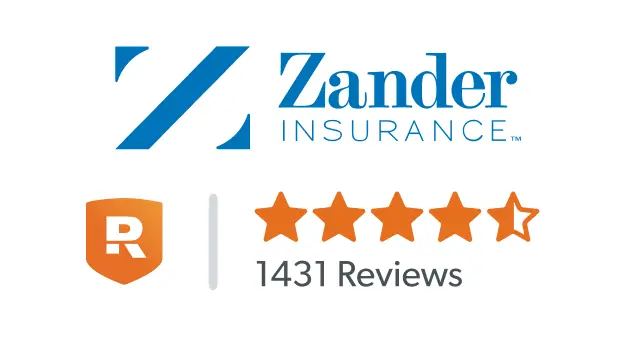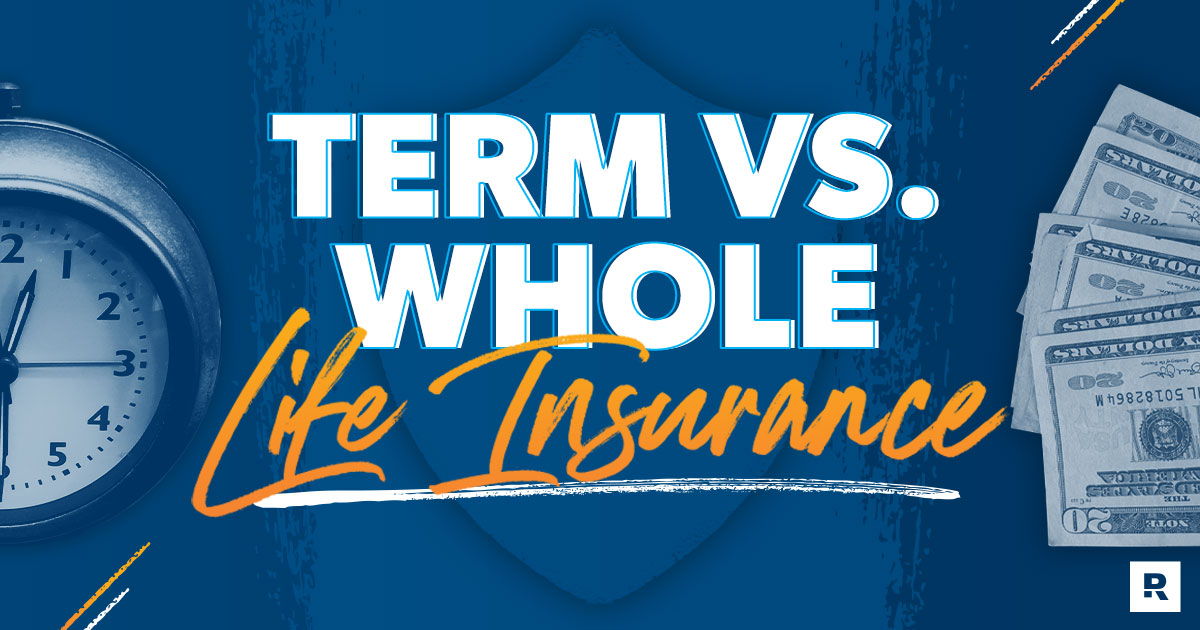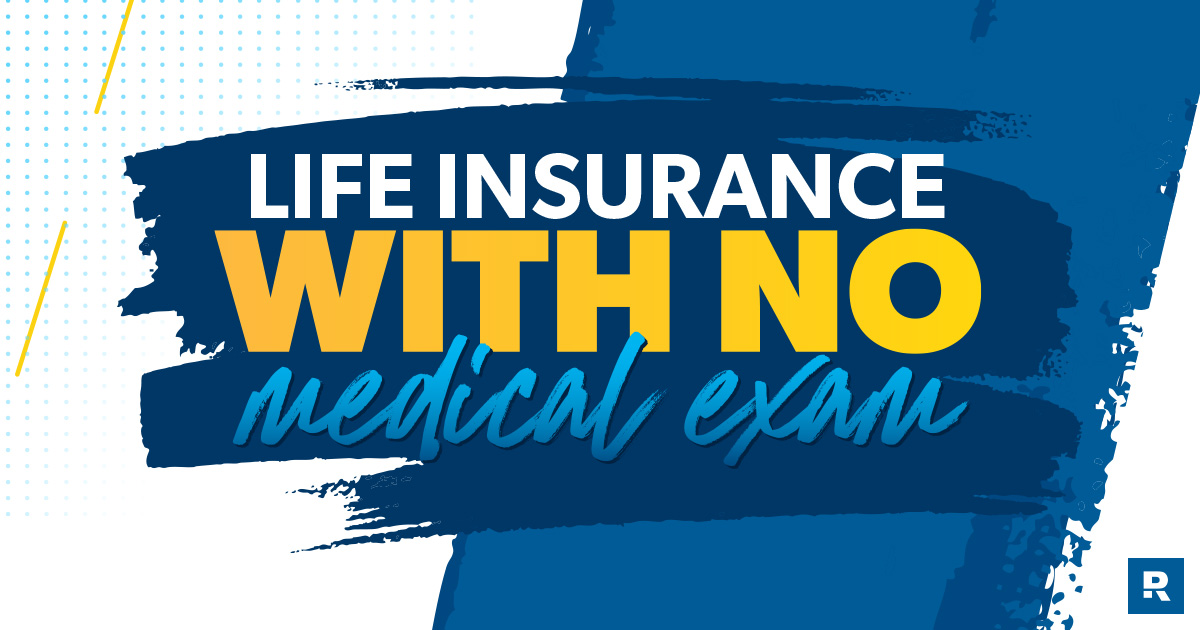
What Is Term Life Insurance?
You know you need life insurance but aren’t sure where to start. Don’t worry. We got your back! Learn why term life insurance is the best way to protect your family’s future.


Plug in your info and let Zander do the work. They’ll shop affordable rates from top insurance companies and send you a list of custom quotes.
Compare quotes and pick the best term life policy for you.
Zander’s your wingman. They’ll guide you through every step of getting set up with your provider and answer all your questions along the way.


That’s right—RamseyTrusted. And it's a big deal. It means that Zander is the only company Dave and the entire Ramsey team recommend for term life insurance. Why? Because Zander has faithfully served our fans for two decades and will do whatever it takes to help you win. They offer the coverage you need and nothing you don’t. Seriously, we’d send our moms to them (and most of us have).
If you’re young and healthy, you could skip the doctor’s office and get life insurance without leaving the couch.
Term life insurance is way more affordable than whole life. Why? Because you only pay for what you need (and nothing you don’t).
If hunting for the best life insurance rates sounds like a pain, you’re not alone! Work with a provider who shops all the top companies for you.
You should buy life insurance when someone depends on you to provide income or when you’re a stay-at-home parent (replacing everything you do would be expensive!). That’s why many people buy life insurance when they get married or have a baby. But even if it’s been a while since those events happened, you still can (and should!) get term life insurance.
Life insurance is only supposed to do one thing: replace your income if you die. If it tries to do anything else (like invest your money), it’s a total rip-off. That’s why we only recommend term life insurance.
Term life is also way more affordable since it’s for a set number of years and doesn’t try to act like an investment. Your best option is to get a 15- or 20-year term policy and invest the difference you saved (by not getting rip-off life insurance) into good growth stock mutual funds. That way you can focus on paying off debt and building wealth.
Term life insurance protects your family’s financial future if you pass away. You’ll buy a policy that lasts for a set number of years, or term. If you die during the term, the insurance company will pay a death benefit (aka payout) to your beneficiary. Then that person—or group of people—can use the payout to cover your end-of-life costs, debts or their own living expenses.
Well, at this point we hope you’ve gone through the Baby Steps and don’t need life insurance anymore. Instead, you can be self-insured by the time your term ends!
"What in the world does that mean?" you may be asking. That just means you have enough money for your family to live on after you’re gone and you don’t need life insurance anymore.
The insurance industry has convinced the public that you need life insurance for your whole life—but that’s simply not true! You only need life insurance when your death would cause your family financial hardship. By the time a 15-, 20-, or 30-year term policy expires, it’s likely your family won’t need life insurance anymore (because your kids are out of college and not dependent on your income).
But if you do still need life insurance for a little longer (until you’re self-insured)—no problem! Most term life plans are guaranteed renewable to age 90 or older, so they don’t really expire. But keep in mind: Once your original term expires, the cost of the policy keeps going up.
The policy length, payout and cost are different.
Policy length: Term life insurance lasts for a set number of years (we recommend 15- or 20-year terms). Whole life insurance lasts for your whole life.
Payout: Term life insurance has a set payout, so the amount listed on your policy is how much your family will get.
But whole life insurance is a cash value policy. That means the insurance company invests part of your premium. (Don’t get too excited—those investments don’t grow much.) You only get the cash value if you live to the company’s maturity age (usually 120 years old). If you die sooner, your family gets a predetermined payout, and the insurance company keeps the cash value. (If it sounds like a rip-off, that’s because it is.)
Cost: Term life insurance costs 10 to 15 times less than whole life insurance . . . but you get more coverage.
You need a life insurance policy worth 10 to 12 times your annual income. You can use our free term life calculator to find out exactly how much that is.
If you’re a stay-at-home parent, you need a policy worth $250,000–$400,000. That will help cover the costs of childcare, housekeeping, tutoring and everything else you do in a day. (Seriously, you are awesome!)
We recommend 15- or 20-year terms. A good rule of thumb is to have enough life insurance to cover your last financial obligation (for example, until your youngest kid is out of college). It keeps your family’s finances protected while you work on saving and investing.
In fact, if you work a good financial game plan, you can become self-insured by the time your term ends. That just means you have enough money for your family to live on after you’re gone and you don’t need life insurance anymore.
Yes—if you want to and you meet the insurance company’s criteria. Typically, that means you’re generally healthy, between 18–65 years old, and need less than $1 million of life insurance coverage. If you’re older or have certain health conditions, you might not qualify to skip the medical exam with most insurers. And if you make more than $80,000 a year, you’ll probably need more coverage than a no medical exam policy will offer.
Our friends at Zander Insurance can help you find a no medical exam provider if you qualify. We’ve got an article you can check out if you want to learn more about no medical exam life insurance.
Let's start by saying we never recommend keeping a cash value policy. This includes whole life, universal life and variable life insurance. The only time when we would tell you to keep one of these policies is if you don’t qualify for a term life plan. However, those cases are few and far between.
If you qualify for term (which most adults do), it’s time to make the switch. Here’s why: Companies selling you cash value plans want you to think you need life insurance your whole life because they get to charge you more that way. But if you follow the Baby Steps, you won’t need life insurance for your entire life because you’ll be self-insured within 15—20 years.
If you do have a cash value life insurance policy—don’t stress! (We all get talked into things we might later regret.) Just reach out to your provider and cancel your policy with them.
The good news is that if your policy has a cash value you can now use that cash to fuel your Baby Steps! Here’s a tip: Most companies will tell you to expect a big tax penalty when you try to cancel, but there’s rarely any tax. And if there is, it’s only based on the amount you get back above and beyond the premiums you paid.
But here’s the key takeaway: Never cancel your policy until you have a new term life insurance policy set up!
Yes! Stay-at-home parents do a lot of work, and it would cost tens of thousands of dollars to hire someone to do those tasks. We recommend that stay-at-home parents have a term life insurance policy worth $250,000–400,000.
Life insurance companies can deny you if they think you’re at high risk of passing away because of health conditions or unhealthy habits. But if you get denied for coverage, there are still ways you can get the life insurance you need.
But make sure you double check that you’re actually uninsurable. Just because you got denied coverage by one company doesn’t mean there aren’t others out there who might consider your application.
The advantage of working with an independent agent like Zander is that they can also help you shop companies who specialize in higher risk individuals and can usually help when other companies or agents can’t.

You know you need life insurance but aren’t sure where to start. Don’t worry. We got your back! Learn why term life insurance is the best way to protect your family’s future.

Term vs. whole life insurance: Which one do you choose? We’ll give it to you straight—term life does its job, while whole life tries to do too many things at once. Let’s see why.

If you’ve ever thought, Ugh, I don’t like medical exams, this type of insurance should ease your mind and get you on a path to peace and security for your loved ones! Here’s what you need to know about getting life insurance with no medical exam.